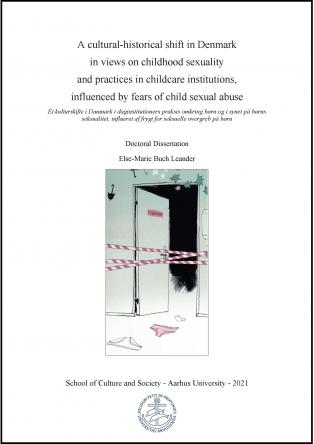A cultural-historical shift in Denmark in views on childhood sexuality and practices in childcare institutions, influenced by fears of child sexual abuse
Keywords:
childhood sexuality, childcare institutions, child sexual abuse, doctor gamesSynopsis
Since the 1980s, the fear of child sexual abuse (CSA) has become a major cultural feature of the West. Internationally, the unintended consequences of this fear are rarely investigated, and doing so is often controversial. The purpose of this dissertation was to investigate these consequences. The dissertation has two key focuses: 1) the influence of the fear of CSA on staff practices, male childcare-staff working conditions, and teacher–child relationships at childcare institutions; 2) the influence of the fear of CSA on the view of childhood sexuality and childcare institutions’ practices surrounding children’s sexual behavior. The dissertation is based on two major empirical studies. One was a mixed methods survey regarding guidelines for protecting children against CSA, and staff against wrongful allegations of this, in which approximately one-quarter of Danish childcare facilities participated. This study also addressed these institutions’ rules regarding children’s nudity and sexual games. The other study investigated the changes in the view of childhood sexuality and nudity in the Danish education and care journal, Børn&Unge (Children&Youth), over 50 years: 1970–2019, in particular the emergence of the “child perpetrator of sexual abuse” in the late 1990s. The main method used in the dissertation is discourse analysis. The conceptual framework includes discourse theory, Foucault’s theory of discipline, and literature on fear. This dissertation, which presents one of the most substantial empirical research projects conducted to investigate the multiple effects and unintended consequences of the widespread fear of CSA, documents an important cultural shift at Danish childcare facilities. It shows that the fear of CSA has had a significant impact on practices and relationships at Danish childcare institutions, enforcing self-defense strategies among staff and resulting in a general disciplining of bodies, and the behavior of both staff and children, which has reduced trust, care, intimacy, learning opportunities, and children’s sexual play. In particular, this dissertation reveals how this development has created social outcasts, even among the children it aimed to protect; it has stigmatized male childcare professionals and influenced the panic surrounding childhood sexuality that identifies some children as perpetrators of sexual abuse.

